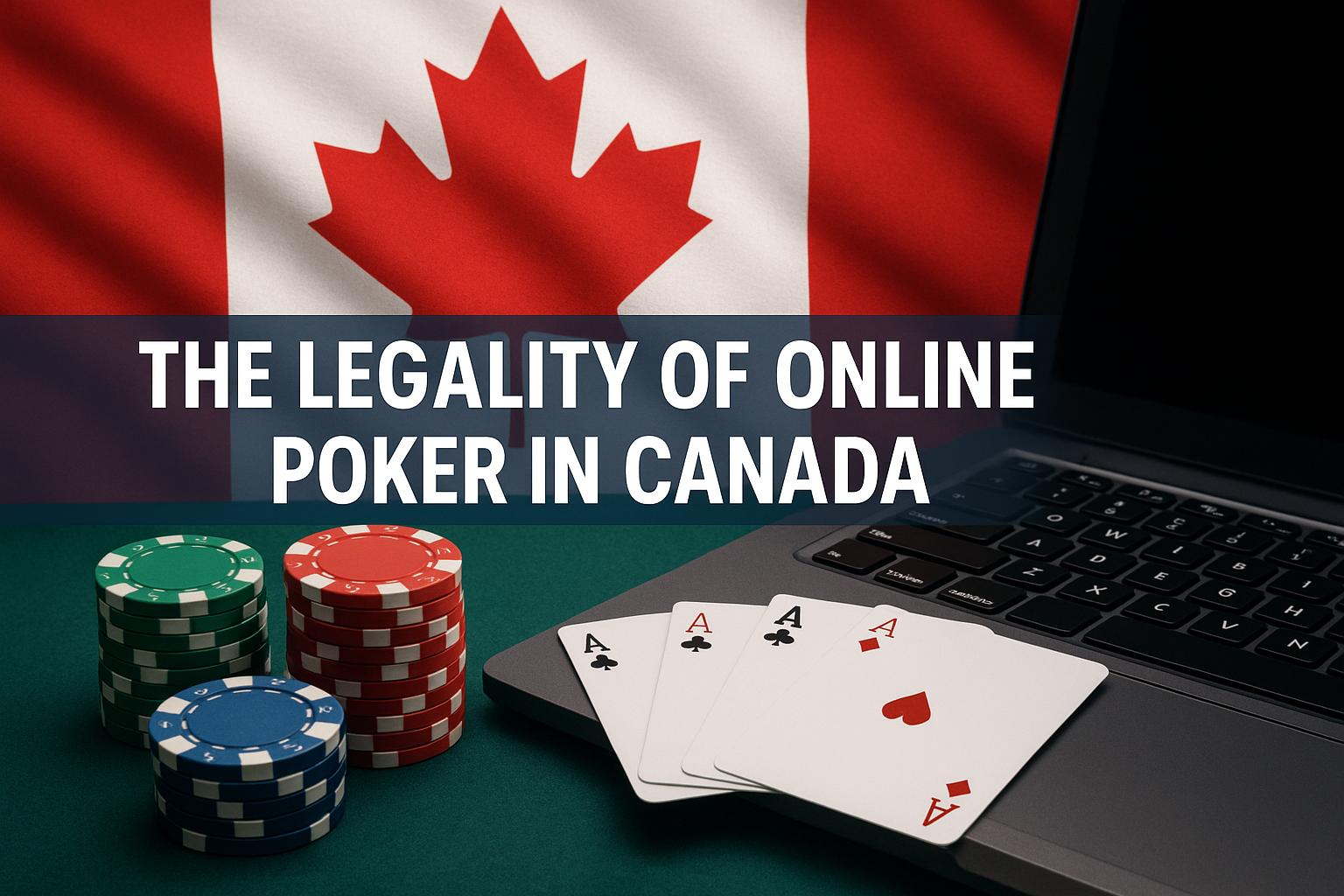The Legal Framework for Online Poker in Canada
Understanding the landscape of online poker in Canada requires a thorough examination of both federal and provincial legislation. Primarily governed by the Criminal Code of Canada, the country’s gambling laws have evolved to permit certain types of gambling activities under specific conditions, including online poker. This development is a result of incremental policy changes aimed at balancing regulation and personal freedom.
Federal Legislation
The federal government, through the Criminal Code of Canada, outlines the general legal framework for gambling activities nationwide. The historic stance was predominantly prohibitive, with all gambling considered illegal unless otherwise permitted by provincial authorities. However, as Canadian society has modernized, these laws have adapted. Section 207 of the code is particularly significant, as it empowers provinces with the authority to manage lotteries and games of chance, including online poker, creating a system where federal principles guide but provincial rules apply.
Under this system, while the federal government lays down broad guidelines, the details of gambling regulation—such as who can gamble, where they can do so, and under what conditions—are determined by each province. This decentralized approach accommodates varying regional perspectives on gambling and allows provinces to tailor their regulations to local preferences and needs.
Provincial Regulations
Canada’s provinces leverage the flexibility granted by federal law to regulate gambling activities within their borders. This autonomy means that residents of each province may experience different legal environments when it comes to online poker.
For instance, British Columbia and Quebec exemplify provinces that have embraced regulated online poker through government-operated platforms. Websites like PlayNow and Espacejeux are sanctioned by provincial gaming authorities, ensuring users of a secure and regulated gaming experience. These platforms represent a partnership between governmental oversight and technological advancement, with the aim of offering safe, fair, and legal gambling opportunities.
Conversely, in provinces that have not established government-run online poker websites, players often turn to international or offshore platforms. This situation presents a legal conundrum. While engaging with these platforms is not overtly illegal due to their operation outside of Canadian jurisdiction, the lack of local regulation places players in a grey area legally. Individuals participating in such online platforms must weigh considerations regarding the legal risks and the implications of engaging with venues lacking provincial oversight.
Understanding the Role of Offshore Platforms
Many Canadian players access offshore online poker platforms, which legally operate outside the country’s jurisdiction. While there isn’t a direct prohibition against Canadians playing on these sites, the lack of domestic regulation raises concerns about player safety and game integrity. Regulatory bodies in international jurisdictions govern these sites, which might not align with Canadian standards, giving rise to potential complications, especially in dispute resolution scenarios where Canadian players may find limited support.
This raises broader questions about consumer protection and the fairness of games offered on these offshore platforms. Players need to be informed consumers, understanding that while these sites offer the allure of competitive play and larger pools of opponents, they may not receive the regulatory scrutiny necessary to guarantee fair play and the protection of player funds.
Tax Implications
Taxation is another critical aspect of the legal landscape for online poker in Canada. Generally speaking, recreational players are not required to declare their poker winnings as taxable income. The rationale is that gambling winnings, for the casual player, are not considered a consistent source of income under Canadian tax law. However, when an individual earns a substantial and consistent income from poker, authorities may deem this activity as a business, hence taxable. For individuals in this situation, understanding the Canada Revenue Agency’s policies and definitions is crucial. Proper filing is essential to avoid potential complications, including audits and penalties.
Future Outlook
The landscape of online poker in Canada is in constant flux, reflecting changes in societal attitudes, technological advancements, and legislative priorities. Provincial authorities may continue to adjust their regulatory frameworks in response to growing interest in online gambling and technological changes that impact how we engage with these platforms. This ongoing evolution could lead to an expansion of legal options for online poker or changes in how these activities are monitored and governed. For players and stakeholders alike, it’s essential to remain informed about both federal and provincial legal developments to navigate this dynamic field responsibly.
In sum, while online poker enjoys a legal status in Canada within a nuanced framework of provincial autonomy and federal oversight, the intricate web of laws that govern this space requires players to stay informed and compliant with relevant regulations to ensure a safe and lawful gaming experience.
This article was last updated on: October 17, 2025

